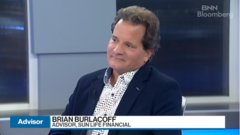May 11, 2018
Darren Sissons' Top Picks: May 11, 2018
Darren Sissons, vice-president and partner at Campbell, Lee & Ross
Focus: Global equities and technology
_______________________________________________________________
MARKET OUTLOOK
Given the high levels of market volatility, the highly politicized global backdrop and waves of negative press, behavioural finance considerations are now meaningfully impacting stock market performances, currencies and commodity prices. Behavioral finance, for those unfamiliar with the term, considers how investors emotions, social, cognitive and psychological factors affect market prices. Negative news on Canadian real estate is now causing emotional buyers to shun or delay their purchases, which will negatively impact the Canadian economy. Rising interest rates in the U.S. are strengthening the greenback at the expense of the loonie, which is changing corporate investment decisions here at home. Canadian tourists are recalibrating their travel plans due to the weakness of the loonie. On the flip side, positive news flows on interest rates are drawing waves of investors to financials (i.e. banks and insurance companies), making it a somewhat overcrowded trade. Likewise, the strong performance of FAANG stocks is drawing a huge investor following into highly priced securities.
The problem with following the crowd, be it by buying high demand securities or by avoiding out-of-favour sectors of the economy, is that it typically creates a poor portfolio performance over time. When investors buy what everyone else is buying, the growth is priced in. Frequently, new investors buy at the top of the market limiting their upside. Likewise, shunning the out-of-favour energy and mining sectors in the last 18 months, for fear of losses, has been a major mistake. Following the herd is a sure path to mediocrity.
The big winners since the global financial crisis have been safety trades: consumer staples, telcos and utilities. Investors are now selling their safety trade winners, absorbing the capital gains tax hit and, in many cases, buying securities with strong investor demand in high-valuation industries such as cannabis, China Internet and bitcoin. Meanwhile, staples, telcos and utilities have sold off substantially and now have attractive yields and inexpensive valuations.
A more rational approach is to step away from the emotion, to periodically evaluate and rebalance your portfolio. When sectors fall out of favour with the masses, it represents opportunity. When investors flock to a sector of the economy, it represents risk.
TOP PICKS
CKI INFRASTRUCTURE HOLDINGS (1038.HK)
CKI is a leading global infrastructure aggregator based in Hong Kong with operations spanning that city, Australia, Canada, continental Europe, New Zealand and the U.K. Typical assets are tolling businesses such as utilities, toll roads and parking buildings. The dividend currently yields 3.8 per cent and has grown by an average of 7.8 per cent for 15 years. It’s got a strong balance sheet and is attractively priced, as it trades at the lower-end of its valuation metrics and its share price doesn’t fully reflect the three sizable 2017 acquisitions of Reliance Home Comfort (in Canada for $2.8 billion), Ista (a German smart grid for $6.8 billion) and Duet (an Australian grid for $7.3 billion).
GENERAL ELECTRIC (GE.N)
A global capital equipment powerhouse, General Electric is attractively priced. The market gives them little credit for its energy business, which will benefit from increased oil field services demand and the bargain priced Baker Hughes acquisition, and GE Capital’s exposure to higher interest rates. The turnaround is in progress. It currently yields 3.4 per cent.
ALGONQUIN POWER (AQN.TO)
A greenish-growth utility with operations in Canada and the U.S., Algonquin has attractive business fundamentals, as revenue and net income have grown at an average of 22.5 per cent and 21.3 per cent over 15 years. The recent U.S. acquisition helped build critical mass and supports earnings growth moving forward. They have a progressive dividend currently yielding 4.7 per cent.
| DISCLOSURE | PERSONAL | FAMILY | PORTFOLIO/FUND |
|---|---|---|---|
| CKI | Y | Y | Y |
| GE | Y | N | Y |
| AQN | N | Y | Y |
PAST PICKS: JULY 7, 2017
INFOSYS (INFY.N)
- Then: $15.04
- Now: $17.63
- Return: 17%
- Total return: 19%
NESTLE (NESN.VTX)
- Then: 82 CHF
- Now: 78 CHF
- Return: -5%
- Total return: -2%
SNC-LAVALIN (SNC.TO)
- Then: $56.74
- Now: $56.11
- Return: -1%
- Total return: 0.39%
Total return average: 6%
| DISCLOSURE | PERSONAL | FAMILY | PORTFOLIO/FUND |
|---|---|---|---|
| INFY | Y | Y | Y |
| NESN | Y | Y | Y |
| SNC | Y | Y | Y |
TWITTER: @KiwiPMI
WEBSITE: http://www.clrim.com/site/home
BLOG: http://www.clrim.com/site/financial-investment-news












